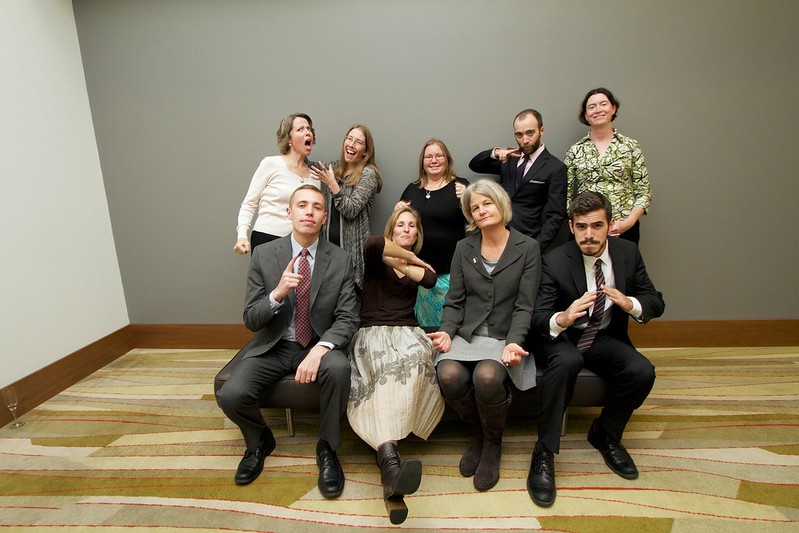
The Prairie Rivers Network staff and board of directors had a wonderful evening visiting with 300 members and friends at our Annual Dinner on October 10th.
Pictures from the Annual Dinner

View full size photos at our Flickr site…
Congratulations to our 2014 Award Winners
Vermilion County Board member Kevin Green received the Outstanding Public Servant award for his work protecting the Middle Fork of the Vermilion River. Green supported the call for responsible closure of Dynegy’s leaking coal ash dumps along the Middle Fork of the Vermilion River by bringing the issue before a variety of local leaders. Multiple Vermilion County boards unanimously passed resolutions pushing the Illinois EPA and political representatives to take action on these deteriorating pits along the state’s only National Scenic River.
Pete Leki of Chicago, IL was presented the River Steward award. Leki has been a tireless champion for the oft neglected and abused Chicago River and is the ecology teacher at Waters School in Chicago, co-steward of Sauganash nature restoration site along the Chicago River, and lead organizer of the Riverbank Neighbors Community group. Prairie Rivers Network is honoring Mr. Leki for his many years of work and inspiration and his leadership in transforming both the North Branch of the Chicago River, as well as the community that thrives along its banks.
Artist and graphic designer Joy Schmoll of Evanston, IL received Prairie Rivers Network’s Volunteer of the Year award for her donation of time and work, including designs of logos, flyers, and t-shirts.
Read more on our award winners…
Nature’s Trust: Environmental Law for a New Ecological Age
Our keynote speaker, Mary Christina Wood offered her take on why the environmental laws of the 20th century are no longer addressing our most pressing problems, including pollution, habitat loss, and climate change. Professor Wood described how regulatory agencies, captured by the industries they are meant to regulate, are now in the business of permitting the pollution they were created to prevent.
She argued passionately for a new legal paradigm based on the public trust doctrine, an ancient legal principle that asserts public property rights to essential resources. The public trust doctrine, propelled by moral imperative to leave the world a better place for our children, compels government, as trustee, to protect natural inheritance such as air and water for all humanity.
Professor Wood concluded her remarks with a story that illustrated beautifully the scope of her work. She described how new development threatened the only surviving salmon of a particular species that spawned near her family’s home in the Pacific Northwest. In response, the community rose up and claimed, as a matter of right, that the salmon must endure, that the river must remain, and that this should be done in the name of future generations, both of fish and humans.







